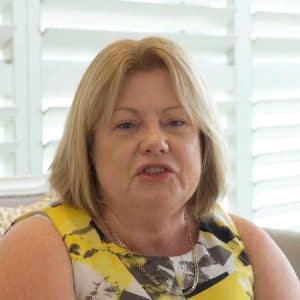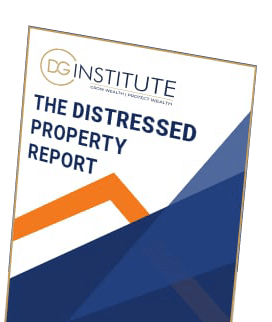Everything you need to know about mortgage broker fees
Published 1:40 am 5 Jan 2021

Mortgage brokers play a useful role in the property market, helping to connect would-be real estate buyers with suitable loans. Their deep understanding of the different lenders and loan products available means brokers can often track down far better mortgage options than a consumer could on their own.
Table Of Content
However, just like any professionals, mortgage brokers expect to be paid for their services. In most cases, brokers structure their businesses in such a way that lenders rather than borrowers foot the bill. This means you can generally have a broker find you a mortgage without paying a cent. However, there are plenty of exceptions and certain cases where a broker can legitimately demand payment from you.
→ Discover The Property Hot Spots In Australia Right Now
If you’re considering using a broker to obtain finance for an upcoming purchase it makes sense to gain a better understanding of the commercial models under which brokers operate, how they calculate their fees, and the circumstances under which you might be hit by extra charges and requests for payment.
Types of mortgage broker fees
Mortgage brokers in Australia operate under a variety of business models.
Many charge their customers nothing and make their living solely from commissions paid by lenders for each loan they successfully facilitate. Others don’t take commissions from lenders at all and instead charge customers a fee for facilitating the loan. Others still charge customers a fee for setting up the loan as well as receiving commissions from lenders.
The three most common fees that can be levied by brokers are: upfront commissions; recurring commissions; and flat fees. Only flat fees are paid directly by consumers, with the other fees paid by lenders.
- An upfront commission is the payment the broker receives from a lender in return for directing your business to them.
- A trailing commission is an ongoing commission that the broker receives for the life of your loan from the lender. As banks prefer loans to have a long life so they can collect more interest, the percentage the broker receives increases over time.
- A flat fee is the amount a broker charges customers for his/her services. Some brokers charge their customers a flat fee and do not take commissions from banks as a means of establishing their absolute impartiality and commitment to finding the best loan for customers.
Mortgage broker fees and tax
Expenses related to the purchase of your own home are generally not tax deductible. However, you may be able to claim a tax deduction for mortgage broker fees related to an investment property.
The ATO divides deductable expenses for investment properties into two categories: management/maintenance costs and borrowing expenses. While borrowing expenses such as interest and repayments are not deductible, items such as mortgage broker fees, loan establishment fees, and lender’s mortgage insurance can generally be claimed.
Mortgage broker charges and fees
The majority of mortgage brokers in Australia structure their businesses in such a way that people seeking loans don’t pay for their services. Instead, they earn their living from commissions paid by lenders (such as banks) in return for bringing in business.
The size of the commissions lenders pay to mortgage brokers depends on a range of factors including the loan-to-value ratio of the loan and its duration. There are also small differences in the commissions paid by individual lenders.
There are typically two types of commissions paid by lenders to brokers.
An upfront commission is the payment the broker receives when a loan he or she has brought to the lender is finalised. The fee varies, but is generally between 0.65 per cent and 0.7 per cent of the loan amount plus GST.
A trailing commission is an ongoing payment made by the lender to the broker across the life of the loan. Banks prefer loans to run over many years as this increases the interest they are able to collect, and so brokers are incentivised through trailing commissions to establish long-running mortgages. While commissions vary, the broker might receive 0.165 per cent of the loan amount after two years, 0.22 per cent after three years, rising to 0.385 per cent from the sixth year onwards.
While people seeking loans don’t typically pay for mortgage broker services there are exceptions. In cases where the loan in question is particularly small or complex, the broker may charge the customer a fee in addition to receiving commissions from the lender. In some instances, brokers do not take commissions from lenders at all and instead charge customers a flat fee. Many brokers have found this way of operating financially challenging and so it is less common.
You should also be aware of clawback or cancellation fees that may be levied by your broker. A significant proportion of the profit a mortgage broker makes on facilitating your loan comes from the trailing commissions paid over the life of your loan. Should you pay off the loan or refinance in a very short time, the broker will not receive these commissions. Under Australian financial law, mortgage brokers are entitled to levy a clawback charge on customers should they end the loan in under two years. However, the fact that clawback may be charged should be disclosed in your credit quote, and the amount charged cannot exceed the amount the broker would have received from the lender.
Mortgage broker agreements
Be sure to read through your agreement with a mortgage broker before proceeding with a loan. You should fully understand your commitments and obligations, particularly with regard to clawback fees. If you terminate your loan in under two years, you may be required to reimburse the broker for lost commissions.
You should also understand that your broker may be paying a referral fee to another financial professional for sending your business to them. If you have been recommended by your financial planner to see a particular broker, it may be the case that your planner receives a commission for this introduction.
There are differences between the cost and structure of broker agreements for commercial property purchases as compared to residential purchases. Due the to added complexity, you are more likely to pay an upfront fee to a commercial mortgage broker.
Frequently Asked Questions
How much are mortgage broker fees?
Many mortgage brokers receive commissions from lenders rather than charging a fee to their clients. Up front commissions are between 0.65 and 0.7 per cent of the loan total, meaning the broker receives $6500 to $7000 on a $1 million loan, minus any costs to the aggregator (umbrella organisation). Trailing commissions range from about 0.1 to about 0.4 percent, representing $1000 to $4000 annually on the same loan.
Can a mortgage broker charge a cancellation fee?
Mortgage brokers typically make their money through commissions paid by lenders when a loan is successfully financed. If a lender finds you a suitable loan but you choose not to take it, they receive no commission. For this reason, if you receive pre-approval or conditional approval for a loan and choose not to proceed, the broker may charge a cancellation fee. This can range from about $1000 to the full commission they would have received on the loan. It can pay to ask about such charges before engaging a broker.
You May Also like to Read
Pressing issues affecting homeowners and prospective buyers
Welcome to this week's edition of the Property Edge newsletter. As we navigate the ever-evolving landscape of Australia’s...
Why Australia Will Never Build Enough Homes
Welcome to this week's edition of the Property Edge newsletter. As we navigate through a rapidly evolving property...
Unlocking Potential: Uncovering Hidden Gems in Australia’s Property Market
Welcome to this edition of Property Edge, where we delve into the latest trends and insights shaping the Australian property...
Suburbs on the Rise: Property Searches Indicate Growth Potential
Welcome to the latest edition of Property Edge, where we delve into the dynamic world of real estate. In this issue, we...
Builder Insolvencies Threaten Government’s Housing Target
Welcome to this week's edition of Property Edge, where we delve into the current state of the property market through the...
Foreign Investment In Australia’s Residential Real Estate Is On The Rise
Welcome to this week's edition of Property Edge, where we delve into the latest trends and developments in the Australian...













